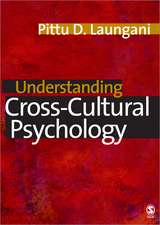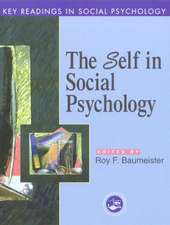Anti-Poverty Psychology: International and Cultural Psychology
Autor Stuart C. Carren Limba Engleză Paperback – 25 iun 2015
Toate formatele și edițiile
| Toate formatele și edițiile | Preț | Express |
|---|---|---|
| Paperback (1) | 637.13 lei 6-8 săpt. | |
| Springer – 25 iun 2015 | 637.13 lei 6-8 săpt. | |
| Hardback (1) | 643.34 lei 6-8 săpt. | |
| Springer – 28 ian 2013 | 643.34 lei 6-8 săpt. |
Din seria International and Cultural Psychology
- 18%
 Preț: 1117.03 lei
Preț: 1117.03 lei - 17%
 Preț: 490.68 lei
Preț: 490.68 lei - 15%
 Preț: 587.02 lei
Preț: 587.02 lei - 15%
 Preț: 647.40 lei
Preț: 647.40 lei - 5%
 Preț: 718.10 lei
Preț: 718.10 lei - 24%
 Preț: 797.39 lei
Preț: 797.39 lei - 20%
 Preț: 564.52 lei
Preț: 564.52 lei - 18%
 Preț: 1693.62 lei
Preț: 1693.62 lei - 18%
 Preț: 1010.48 lei
Preț: 1010.48 lei - 18%
 Preț: 784.13 lei
Preț: 784.13 lei - 18%
 Preț: 780.52 lei
Preț: 780.52 lei - 18%
 Preț: 946.24 lei
Preț: 946.24 lei - 15%
 Preț: 641.85 lei
Preț: 641.85 lei - 18%
 Preț: 952.57 lei
Preț: 952.57 lei - 5%
 Preț: 1031.68 lei
Preț: 1031.68 lei - 5%
 Preț: 708.78 lei
Preț: 708.78 lei - 15%
 Preț: 476.75 lei
Preț: 476.75 lei - 18%
 Preț: 1120.18 lei
Preț: 1120.18 lei - 15%
 Preț: 638.76 lei
Preț: 638.76 lei - 20%
 Preț: 556.10 lei
Preț: 556.10 lei - 15%
 Preț: 700.10 lei
Preț: 700.10 lei - 15%
 Preț: 697.94 lei
Preț: 697.94 lei - 5%
 Preț: 1095.90 lei
Preț: 1095.90 lei - 18%
 Preț: 999.94 lei
Preț: 999.94 lei - 24%
 Preț: 842.28 lei
Preț: 842.28 lei - 15%
 Preț: 646.62 lei
Preț: 646.62 lei - 18%
 Preț: 947.95 lei
Preț: 947.95 lei - 18%
 Preț: 892.74 lei
Preț: 892.74 lei - 5%
 Preț: 1098.27 lei
Preț: 1098.27 lei - 20%
 Preț: 552.45 lei
Preț: 552.45 lei - 15%
 Preț: 649.54 lei
Preț: 649.54 lei - 18%
 Preț: 785.55 lei
Preț: 785.55 lei - 18%
 Preț: 947.67 lei
Preț: 947.67 lei - 18%
 Preț: 947.98 lei
Preț: 947.98 lei - 18%
 Preț: 952.26 lei
Preț: 952.26 lei
Preț: 637.13 lei
Preț vechi: 749.56 lei
-15% Nou
Puncte Express: 956
Preț estimativ în valută:
121.94€ • 131.63$ • 102.25£
121.94€ • 131.63$ • 102.25£
Carte tipărită la comandă
Livrare economică 18 aprilie-02 mai
Preluare comenzi: 021 569.72.76
Specificații
ISBN-13: 9781493901944
ISBN-10: 149390194X
Pagini: 228
Ilustrații: IX, 218 p.
Dimensiuni: 155 x 235 x 12 mm
Greutate: 0.33 kg
Ediția:2013
Editura: Springer
Colecția Springer
Seria International and Cultural Psychology
Locul publicării:New York, NY, United States
ISBN-10: 149390194X
Pagini: 228
Ilustrații: IX, 218 p.
Dimensiuni: 155 x 235 x 12 mm
Greutate: 0.33 kg
Ediția:2013
Editura: Springer
Colecția Springer
Seria International and Cultural Psychology
Locul publicării:New York, NY, United States
Public țintă
ResearchCuprins
Part I: Levels.- Personality.- Organizations.- Part II: Community.- Markets.- Media.- Part III: Nexus.- Aid.- Mobility.- Systems.
Recenzii
"When one considers wealth, one must take into account how global connections related to international trading, exchanges, and currency affect the affluence of any individual on a local level. Although poverty is found globally, it is sometimes difficult to imagine how the economic decisions on one side of the world may affect the lives of an impoverished family on another side. Yet the global mechanisms that facilitate wealth and affluence also affect the lives and policy decisions around poverty. Such is the scope and focus of Stuart Carr’s book, Anti-Poverty Psychology. The book is divided into three major sections: Levels, Places, and Nexus...Among the strengths in Carr’s book are his historical analyses of psychology’s role in understanding, and sometimes perpetuating, poverty. It is difficult to imagine for somereaders, but the discipline’s role in understanding people in poverty, impoverishment, and global connections to poverty has been limited and at times denigrating to those in poverty. The book is likely written for psychologists who are engaged in antipoverty work and who are familiar with concepts related to economic inequality and poverty. Carr’s writing is dense at times, and the reader is expected to work hard to digest his arguments and propositions. This is good because he does not have the space to explain and rationalize his approach to antipoverty psychology. He writes forcefully to engage psychologists. In sum, the book is an excellent compendium of current antipoverty actions, and psychologists will find useful resources to conceptualize their own place in antipoverty work." (William Ming Liu, PsycCRITIQUES, August 28, 2013, Vol. 58, Release 35, Article 4)
Notă biografică
Stuart Carr is known for applying organisational psychology, with inter-related disciplines, to poverty reduction. His research ‘breaks through’ into world-class applied journals, the OECD’s “Policy Insights” and UNESCO’s “Higher Education Policy.” His books include Psychology of aid, Psychology and the developing world, Globalization and culture at work, Poverty and psychology, The Aid triangle, and The Psychology of Global Mobility. He contributed the chapter on Psychology applied to poverty in the International Association of Applied Psychology’s “Handbook of Applied Psychology.” His recent international grant awards include leading Project ADDUP, which researched dual salary systems in aid and was funded by the UK’s Department for International Development (now UK Aid) and the Economic and Social Research Council (ESRC). Stuart convenes a Global Task Force on Humanitarian Work Psychology, a White Papers Policy series for his profession globally, and the first Global Special Issue on Psychology and Poverty Reduction, involving twelve major international journals. He also co-edits the Journal of Pacific Rim Psychology, which focuses on development issues, and is Associate Editor for the Journal of Managerial Psychology, which has a focus on social innovation and change.
Textul de pe ultima copertă
Reducing poverty, whether globally or locally, has always comprised a set of complex critical tasks. But just as essential as the tasks is their underlying worldview: where formerly the emphasis was on changing institutions and thus changing people, the movement now is away from paternalistic remedies and toward culturally aware organizations and efforts to develop the untapped resources of people and their communities.
Anti-Poverty Psychology traces the evolution of conceptualizations of poverty and its solutions, forcefully arguing for a higher level of current and future efforts. This visionary volume provides readers with a clear roadmap from goals (e.g., the Millennium Development Goals) to implementation that neither shames nor objectifies those being served. The author demonstrates how, in both research and the real world, progress is best achieved through systematic, cross-disciplinary, multi-perspective collaboration, alignment with local values, and greater accountability on the part of all involved. Coverage balances macro, meso and micro levels of analysis in such areas as:
Anti-Poverty Psychology traces the evolution of conceptualizations of poverty and its solutions, forcefully arguing for a higher level of current and future efforts. This visionary volume provides readers with a clear roadmap from goals (e.g., the Millennium Development Goals) to implementation that neither shames nor objectifies those being served. The author demonstrates how, in both research and the real world, progress is best achieved through systematic, cross-disciplinary, multi-perspective collaboration, alignment with local values, and greater accountability on the part of all involved. Coverage balances macro, meso and micro levels of analysis in such areas as:
- Constructs of personality: beyond mythmaking and pathologizing.
- Building the socially responsible organization.
- The role of community in self-empowerment.
- Harnessing the potential of markets in poverty reduction.
- Minting media social capital
- The hidden psychology of international aid.
- Mobilizing human talent locally
- Developing research advocacy and its component skills.
Caracteristici
Highlights and builds the role of businesses, aid agencies, government civil services, community groups and educational institutions on reducing poverty Shows how a multi-level, inter-disciplinary approach that includes human factors is vital Aligns global poverty reduction with the psychology of local communities Includes supplementary material: sn.pub/extras


















